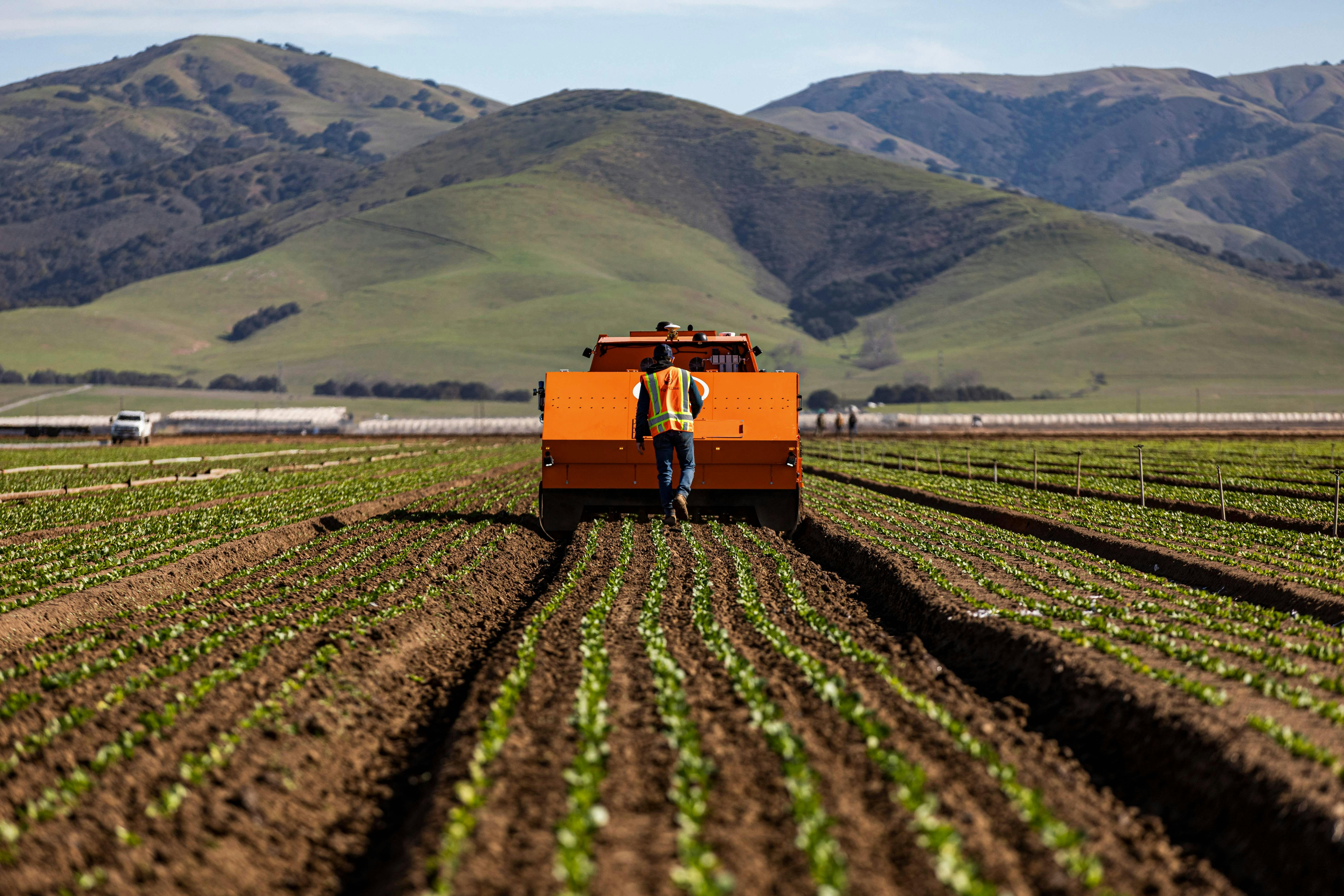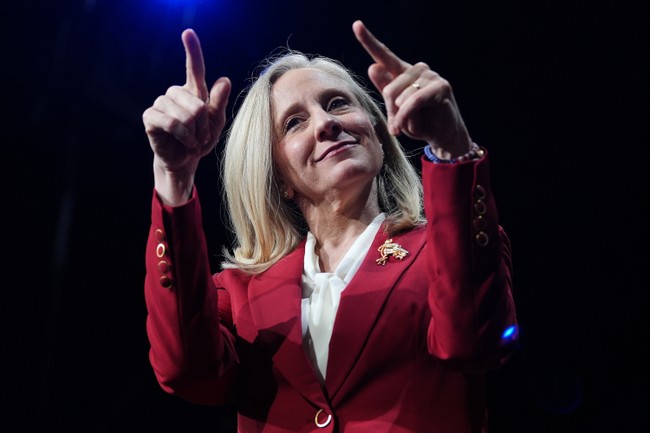In late June, overlooked amid pandemic, economic crisis, and protest headlines, a bipartisan cohort of United States senators introduced a bill to establish a U.S. Department of Agriculture, or USDA, certification program, helping farmers and forest landowners participate in carbon credit markets. The bill’s sponsoring politicians ranged from Rhode Island Democrat Sheldon Whitehouse to South Carolina Republican Lindsey Graham. But the diverse set of interest groups that proudly pasted their logo to the bill’s one-pager was even more striking. The collage featured traditional agribusiness giants like McDonald’s, Cargill, Syngenta, and Land O’ Lakes, corporate lobby groups like the National Milk Producer’s Federation and The American Farm Bureau Federation, and also conservationists like The Nature Conservancy, The American Farmland Trust, and the Citizen’s Climate Lobby. The bill’s most conspicuous private-sector supporter is Microsoft, which announced in January it intended to become “carbon negative” by 2030.
The magical idea that America’s farmland could become a planet-saving carbon repository has enchanted the country: In theory, farmers could get paid to capture carbon in their soil—something that healthy soil does naturally, and if farmers changed some of their practices, like planting cover crops and reducing tillage, could be accomplished at a much higher rate. Practices like this slow erosion and save water in addition to helping the world counter greenhouse gas emissions. It’s a perfect Band-Aid for those who don’t want serious emissions-curbing legislation and a prime staging area for corporate greenwashing. The problem is that it’s not clear it works. What is clear is that the agricultural carbon sequestration dream serves as a fig leaf for increasingly consolidated agribusiness—and the urgent reforms needed both for curbing emissions and rethinking American agriculture.
Even in serious climate forums, the soil sequestration opportunity has rippled uncritically through the mainstream. “American farming should be one of the key pillars of how we combat climate change,” Pete Buttigieg repeated all through rural Iowa and on several debate stages in his quest for the 2020 Democratic nomination. Presumptive nominee Joe Biden added soil sequestration to his climate platform in July. It’s a savvy strategy for many politicians: As Politico reported this week, rural voters love this idea, with 84 percent across the board supporting climate legislation that is specifically phrased as “helping farmers.” Farmers themselves are sick of being blamed for environmental issues, and any idea that involves a new revenue stream is likely to earn support; environmental policies are usually regulations with more punishments than incentives, and USDA conservation programs are effective but underfunded.
If the proposition sounds good to farmers, it sounds even better to industrial agriculture and large corporations in other sectors. With the corporate class facing more pressure than ever from investors and consumers to pose as warriors in the “fight against climate change,” the will to establish carbon markets for soil sequestration is stronger than ever. Though efforts have gained ground and then stalled in the recent past, this time could be different. Just two weeks before the Senate introduced its bill, big-money farming startup Indigo Agriculture led the way with an out-of-the-blue announcement that it was establishing a self-financed carbon market.
It all sounds too good to be true—and it is. While support for soil carbon is forging unprecedented partnerships, its scientific basis is collapsing. A comprehensive feature on the subject by Gabriel Popkin in Yale E360 emerged this spring; two months later, Mother Jones editor Maddie Oatman penned a similar investigation. Their findings were clear: The science of soil carbon, to put it literally, lacks depth. The first generation of studies that documented buildup of soil carbon on farmland only took measurements that went at most a foot deep. Once scientists began looking at meter-deep sections of soil, Popkin reports, they found that while carbon had been gained in the upper layers, it had also been lost down below. The result was that carbon had basically been shifted around rather than being captured and stored. The USDA’s main tool for filing soil data only measures the first 30 centimeters, about a foot.
The task of accurately tracking the changes in soil carbon in sections of land and then confidently crediting a farmer for doing it is currently beyond our scientific capabilities. “Everybody I spoke with agrees that regenerative agriculture is good for soil health and has important environmental benefits that may be worth paying for,” Popkin wrote. “But nearly all scientists also want more certainty before wholeheartedly endorsing fighting climate change using farming practices.” Sequestration guru Jonathan Foley of Project Drawdown, writing to Mother Jones, called some of the claims around soil sequestration “somewhat irresponsible.”
While farmland carbon capture’s primary problem may be that it overpromises results, the other tragedy of this policy fixation is the way it distracts from American agriculture’s dire need for broader reforms. Food production and farming practices are currently driving multiple forms of climate and environmental degradation, greenhouse gas emissions being just one. Row crops are breeding superweeds while chemical use has obliterated prairie biodiversity; manure from animal confinements is contaminating entire water sheds and suffocating the Gulf of Mexico; and rampant antibiotic use will compromise modern medicine. Farmland sustains modern society, and its inevitable collapse, if current practices continue, will only partly be due to planetary warming. Higher temperatures could spread pests and plant diseases, reduce yields through heat waves, droughts, and storms, and disrupt the seasonal schedule some trees need to bear fruit. But pollinator loss, widely attributed to pesticide use, is already harming production; runoff is sending ocean ecosystems into chaos; and severe water shortages in our most productive areas are imminent. All this depletion results in the harvest of 40 million acres of corn—a cornfield nearly the size of Wisconsin—to blend as ethanol into our gasoline: an older version of a corporate-backed, politically favorable, once-hopeful climate solution justified by flimsy science.
That this host of problems has been overshadowed by the soil carbon redemption myth has a lot to do with lobbying against serious climate legislation. But it’s also the product of an unholy marriage of Big Tech and Big Ag.
Over the last ten years, investors and entrepreneurs have tried to leverage all manner of available data—machine learning, satellite imaging, drones, microbial science, and more—to “disrupt” the business of farming. These tend to feature buzzwords like “precision agriculture,” “smart,” or “carbon farming,” and typically involve the collection of huge amounts of data from farm fields to provide more information and “insights” to customers. Imagine a farmer using “agtech” to save money on herbicides by spraying with computerized discretion, weather and field sensor technology to predict when to plant and anticipate yields, monitors that track a cow herd’s health metrics and social patterns. With investment in farmland expanding rapidly, a major trend in agtech is to help absentee investor-owners farm remotely, using data to pinpoint farmland value and profit potential.
The burgeoning ag-tech sector attracted almost $3 billion in investment in 2019. As a sturdy, capitalized, and highly concentrated market, the sector hasn’t produced many successful new corporations, instead paying out with lucrative mergers. Bayer, the German pharmaceuticals giant that purchased Monsanto in 2016, shot the starting pistol for the ag-tech spending spree in 2013 when it bought a weather data company for about $1 billion. No one wants to be left behind, even though industry revolutions have yet to materialize. “While the top-line dollar investments [in agtech] have increased fourfold since 2015,” agricultural magazine The Progressive Farmer reported in March, “more of the money is going toward successful startups aiming to scale up, as opposed to early stage startups looking for seed money and angel investors.”
It’s early yet, but carbon sequestration is starting to look like a thin veil for agribusiness to let their new agtech projects mature out in the open while scoring public relations points rather than drawing scrutiny. This week, The Progressive Farmer’s Chris Clayton reported a wave of “new digital tools and tech alliances” initiated by some of the world’s largest agribusiness companies, and the pairings are striking: pork processing giant Smithfield and the 2014-founded agricultural software development company Granular (owned by a spinoff of DowDuPont); Land O’Lakes dairy; and Microsoft. It’s not hard to imagine how such partnerships, combined with carbon sequestration schemes, could soon play out in marketing strategies: “This butter came from farms that are sequestering carbon!” Marginally reduced chemical use is one of the main benefits of new precision technologies, but reminding shoppers that poisons are a necessary component in their food production doesn’t make great ads.
Mergers and partnerships between Big Tech and Big Ag are the opposite of what American farming needs. As Ted Genoways wrote in The New Republic’s latest issue, an agricultural system plagued by monopoly won’t benefit from further integration. As we’ve seen so clearly during the pandemic, agribusiness controls the White House like its puppet, gaining wartime privileges to keep slaughterhouses open while the virus infected thousands of mostly immigrant exploited workers, killing nearly 200 as of August 6. The poultry industry is being investigated for using software to fix prices; it’s hard to imagine that more data in their hands will be put to noble use.
As more and more voters start supporting climate legislation, political doors are opening. But for real change, politicians will need to look beyond the seductive, lucrative myth of soil carbon sequestration as some kind of an emissions panacea. American farmland—one of our most precious and vulnerable resources—needs help. It shouldn’t be used as a questionably effective sewer to drain away Big Oil’s misdeeds.
















